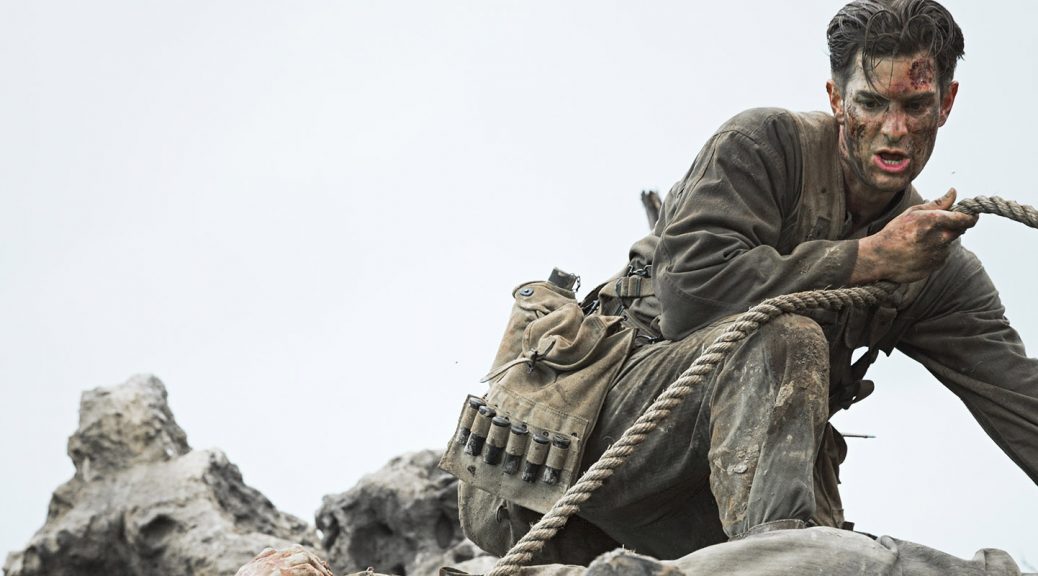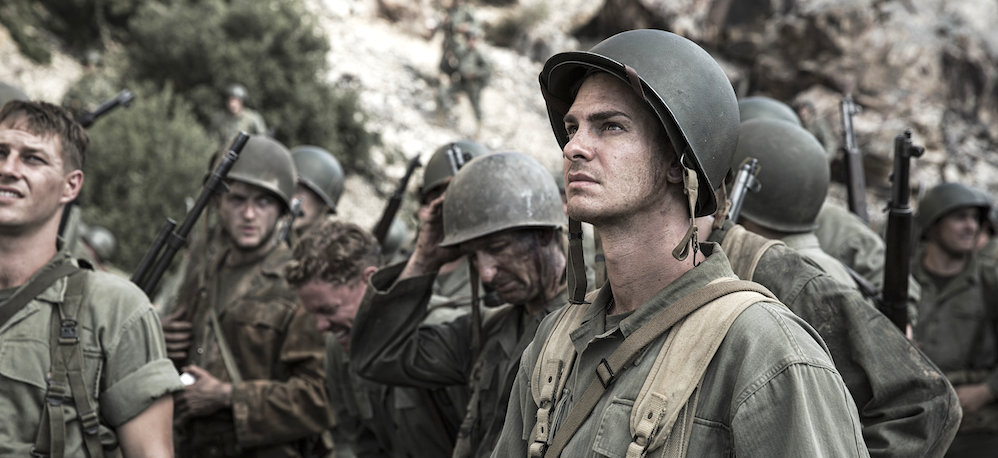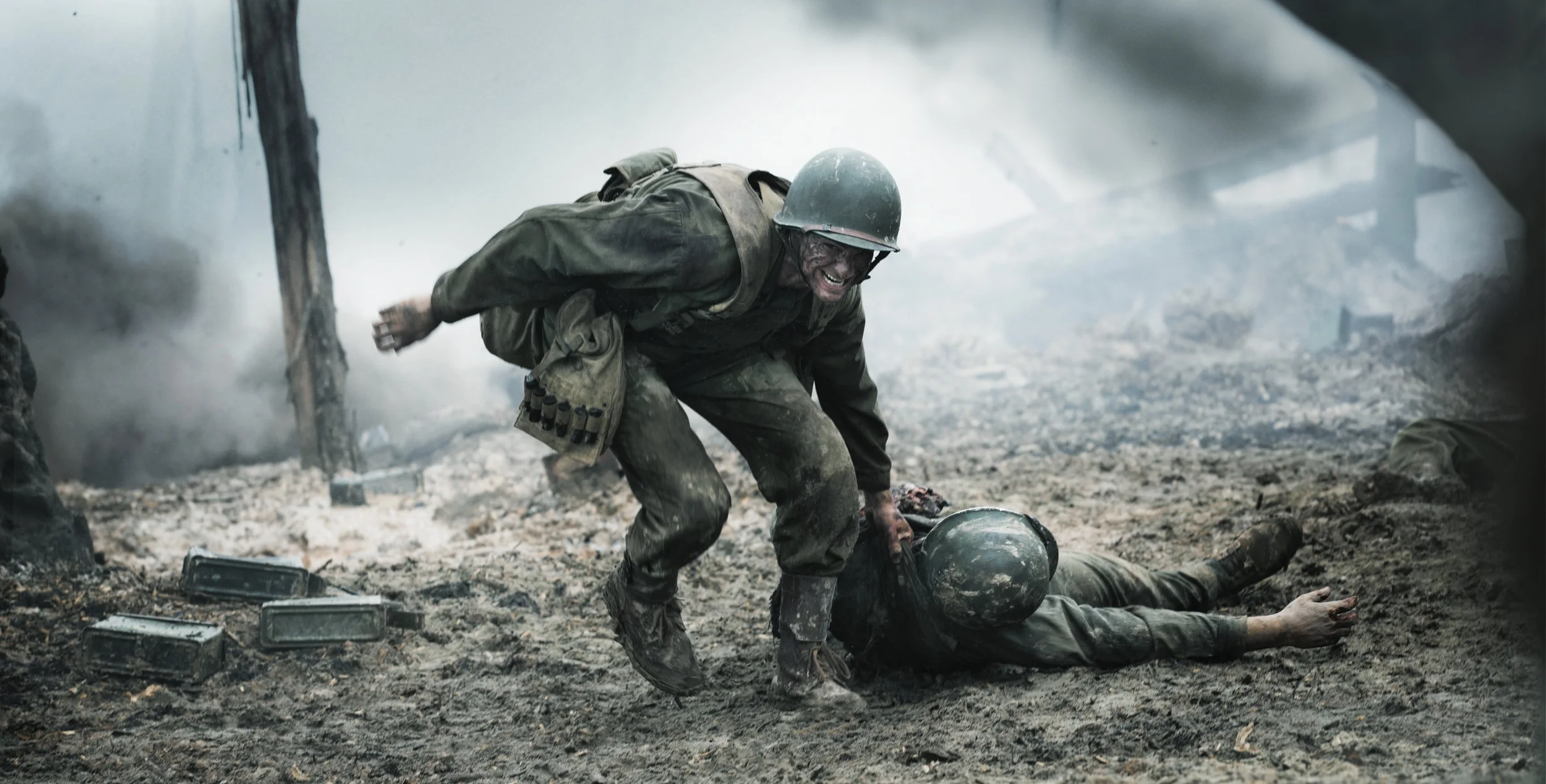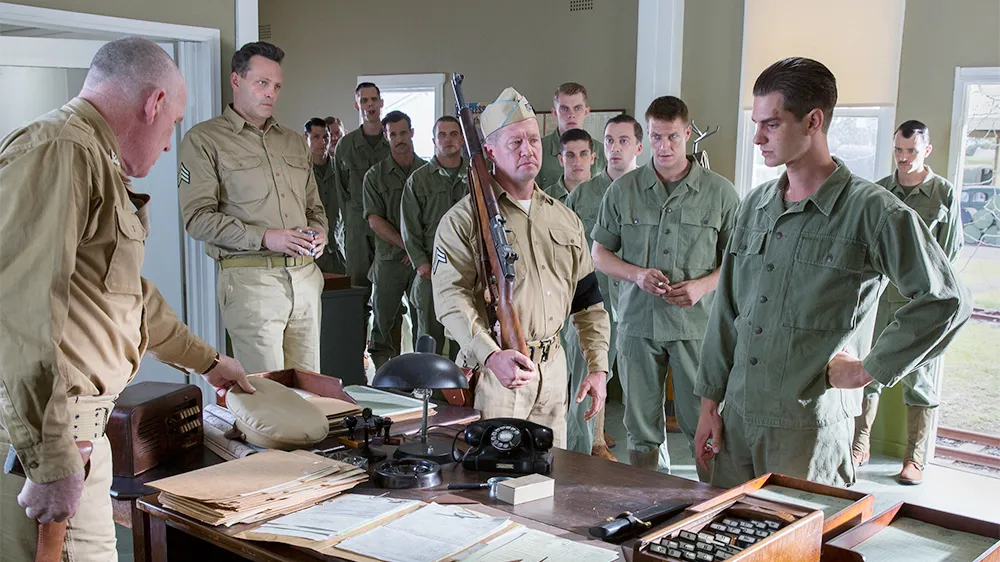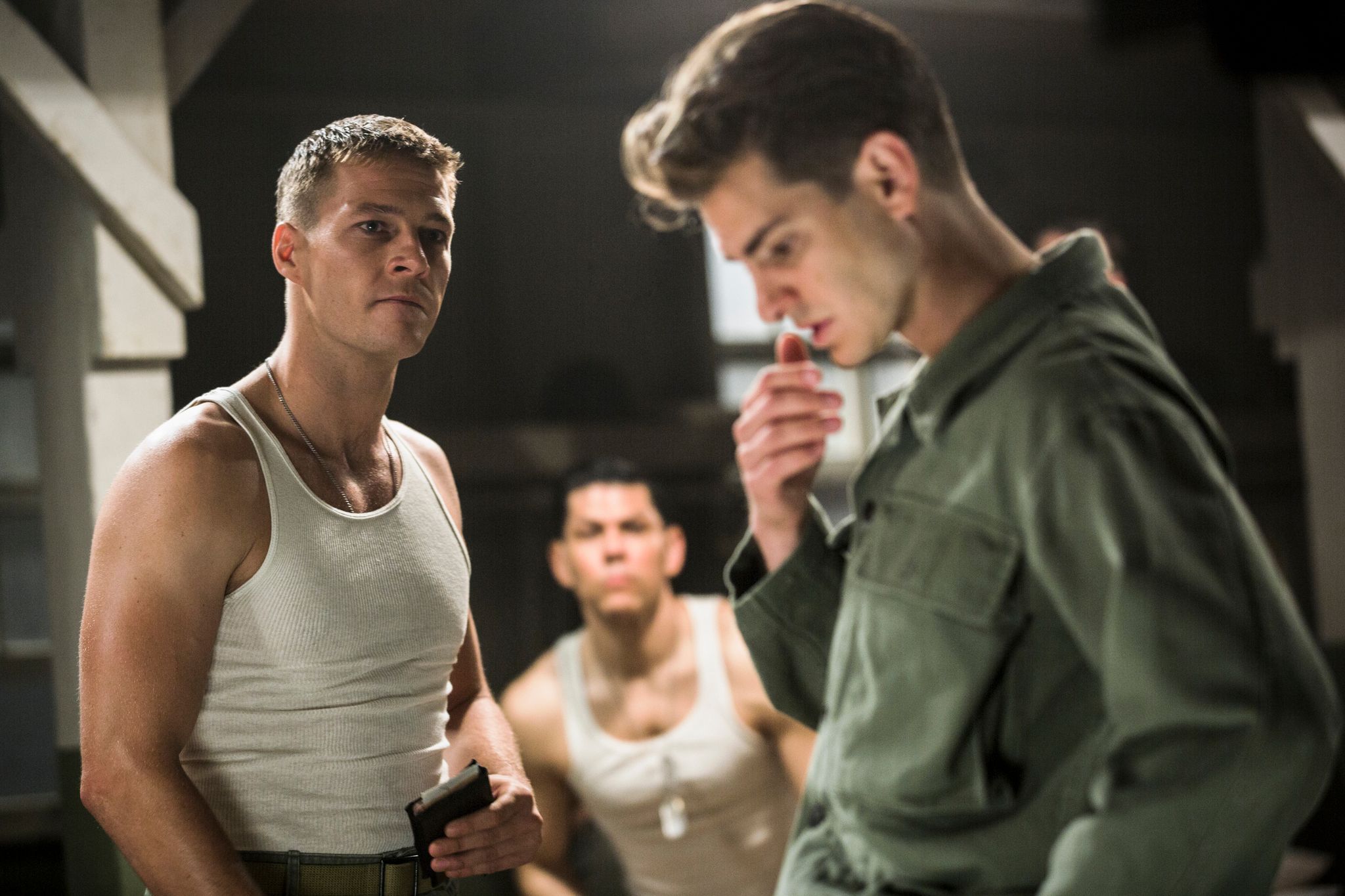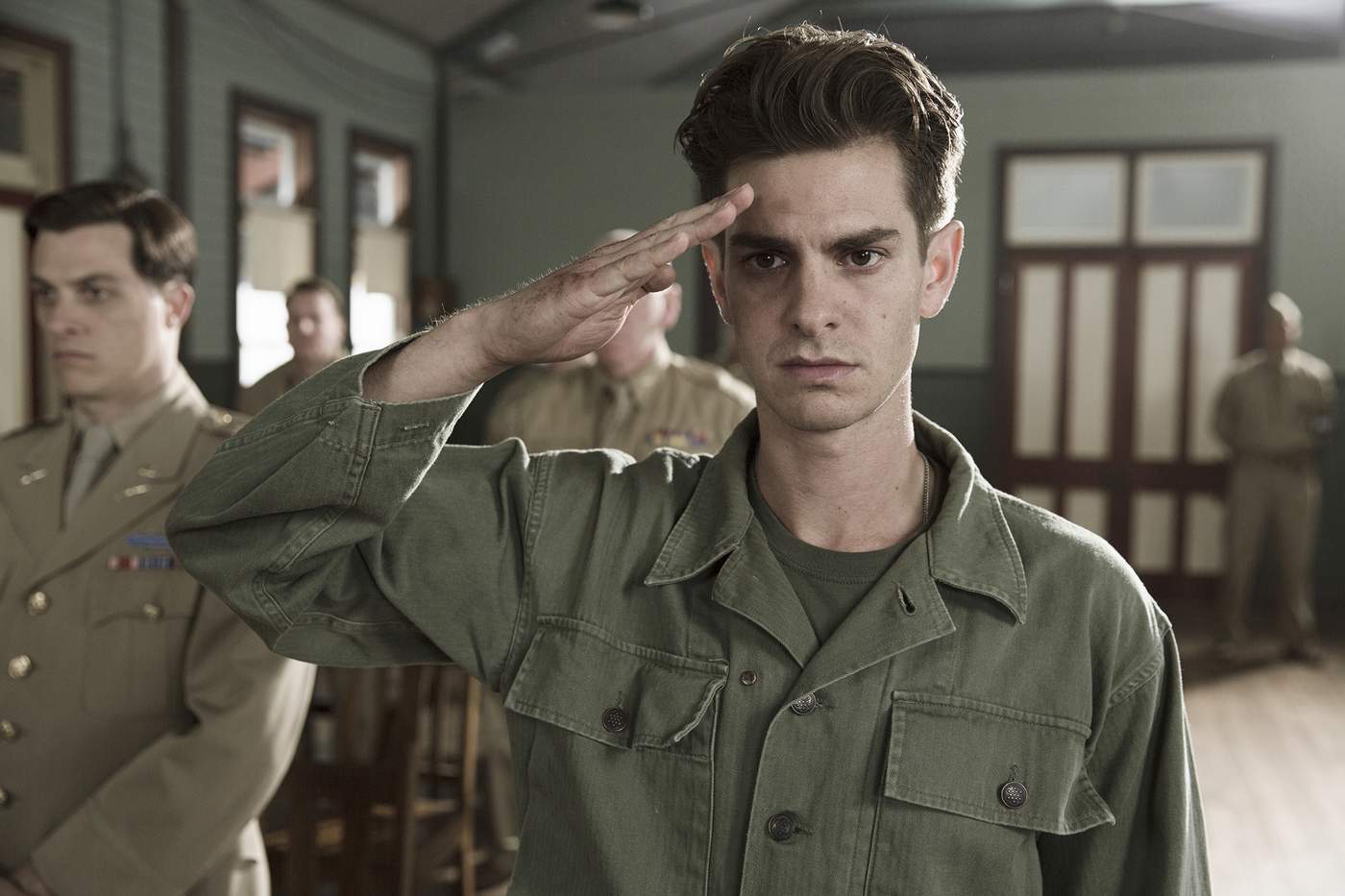War movies are not typically my choice when it comes to picking something to watch. I find them emotionally heavy, often steeped in sadness and drama, and more often than not, I’d rather avoid them. Yesterday, my dad and I stumbled upon Mel Gibson’s 2016 masterpiece Hacksaw Ridge on TV. My father immediately said: “Watch this, Bole (one of my nicknames), it’s an amazing movie. He serves in the army but never touches a rifle.” Now, I usually don't like spoilers, and yes ... he practically told me the core of the plot in one sentence. And I am now doing the same thing to you. :D Instead of ruining the experience, it pulled me in. A soldier who refuses to hold a gun? A war film without the weapon in the hero’s hands? I was intrigued. So, we left the channel on, and what followed was over two hours of awe, shock, and inspiration.
I can now surely say: Hacksaw Ridge is one of the most moving, beautifully shot, and thematically rich war films I’ve ever seen. And yes, it gets my 10/10 rating on IMDB. Also, I cannot begin this review without saying at least a word about Mel Gibson’s direction. He just has a rare gift for crafting epics that balance brutality with beauty.
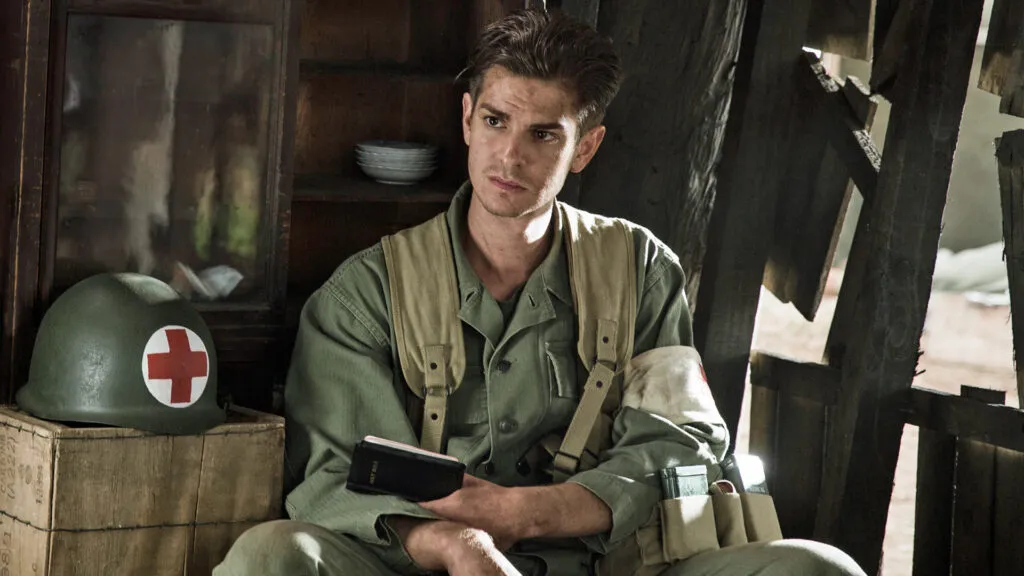
The movie is based on the true story of Desmond Doss, a U.S. Army medic and devout Seventh-day Adventist from Virginia. The time is the height of World War II, and the place where history is written in blood is Okinawa specifically, the jagged escarpment known as “Hacksaw Ridge”.
The film begins far from the battlefield, though. We’re first introduced to Desmond in the Blue Ridge Mountains, where he grows up in a troubled household. His father, a war veteran scarred by trauma, often drinks and lashes out. His mother holds the family together, and Desmond grows up torn between violence in the home and his deep religious convictions.
It’s here that Gibson plants the seeds of what will later become Desmond’s defining principle:
“Thou shalt not kill”.
As the war escalates, Desmond feels compelled to serve his country, but on his own terms. While his peers enlist to fight, Desmond enlists to save. He joins the U.S. Army as a medic but declares openly that he will not carry a weapon. This is where the drama intensifies. His fellow recruits view him as a coward, someone unreliable who would fail them when it matters most. His refusal to hold a rifle gets him beaten by his peers, mocked by his officers, and eventually brought before a military tribunal.
One of the film’s most powerful lines comes during this struggle:
“With the world so set on tearing itself apart, it don’t seem like such a bad thing to me to put a little bit of it back together”.
That line alone defines Doss’s philosophy. And while it earns him ridicule in the beginning, it eventually sets him apart as one of the bravest men on the battlefield. ❤️
When the soldiers reach Okinawa, the tone of the movie shifts entirely. What had been a story about ideals and conviction turns into one of the most visceral, horrifying, and visually stunning depictions of war I’ve ever seen on screen. The chaos, the explosions, the cries of the wounded soldiers. And yet, in the middle of that madness, there is one figure who refuses to give in: Desmond Doss.
When his unit retreats, Doss stays behind on the ridge. Alone, under fire, he searches for the wounded. One by one, he drags them to safety, lowering them down the cliff on ropes, all the while whispering his prayer:
“Please Lord, help me get one more. Just one more.”
It’s a haunting mantra, one that repeats as his hands blister and his body collapses from exhaustion.
There are several scenes that I still can’t shake from my mind. 1. The improvised stretcher scene: When Doss finally picks up a rifle, not to fire it, but to create a makeshift support so he can drag his wounded commander to safety. His superior covers their retreat, shooting back, while Doss pulls him out. It’s ironic and genius at the same time: the weapon becomes a tool of life instead of death.
-
The unexpected humanity: At one point, Doss even tends to an injured Japanese soldier. It’s a fleeting but significant moment, one that underscores his commitment to saving life without discrimination. I had literally just asked my dad: “Do you think he’ll save a Japanese soldier too?” And right then, it happened. It was almost like the film anticipated the question.
-
The moment of acceptance: When his comrades finally realize that the man they mocked is the very reason they are alive. It’s not just emotional, it is transformative!
Normally, I’m the kind of viewer who gets bogged down by the history, the sequence of battles, the politics of it all. Watching with my dad, I couldn’t help but ask questions ... what actually happened, what the timeline was, who attacked first. He would explain, I’d nod about how cruel is the whole world, and then quickly forget the details.
This is not just a war film. It’s a human story about conviction, resilience, and faith. It asks the viewer:
"Can courage be defined not by killing, but by saving?"
